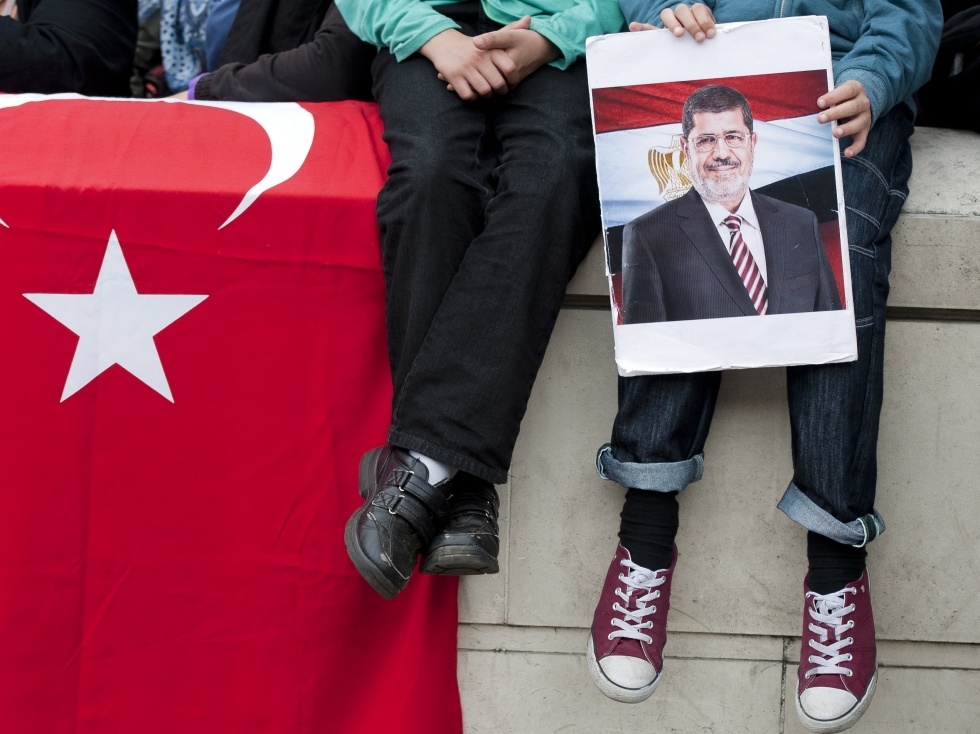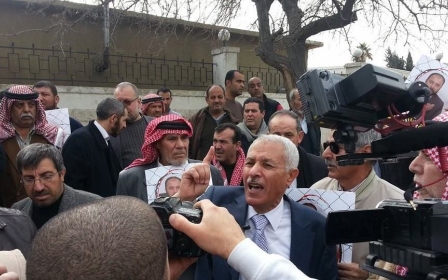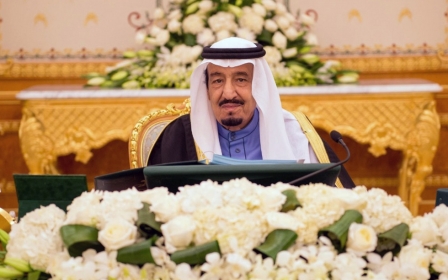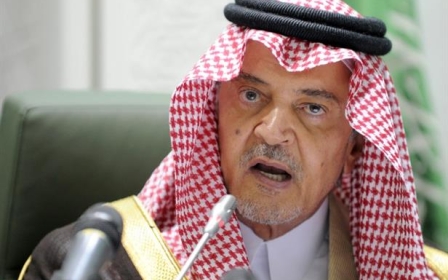UK Muslim Brotherhood report to be released 'early next week'

The UK government’s report into the Muslim Brotherhood will be released next week, after months of stalling and buck-passing among different British government departments.
According to BBC Newsnight on Thursday, the report into the activities and ideology of the Muslim Brotherhood, led by former UK ambassador to Saudi Arabia John Jenkins, will be released “early next week” and will be unlikely recommending either the banning of the group nor label them a terrorist organisation.
Nevertheless, senior figures in the Brotherhood have suggested they would be willing to sue the British government in order to prevent the report from harming their reputation.
“From the Muslim Brotherhood’s perspective, we wouldn’t stop or allow our reputation to be defamed,” said Yehia Hamad, the Brotherhood’s former Egyptian Minister of Investment, speaking to Newsnight in Istanbul.
Amr Darrag, former minister for planning and international cooperation, agreed that the government should be hesitant.
“The worry that I have is not the report itself but the interpretation of the report and I’m sure the UK government wouldn’t want to do that, to allow something to justify the kind of oppression and the kind of violations to human rights that take place due to misinterpretation of something in the report,” he said.
The report, which has often been described as a "hot potato" has been passed between different departments including the Foreign Office, Home Office and Cabinet Office with no-one seemingly willing to take responsibility for the contents or their consequences.
In December 2014, Downing Street told reporters that the report would not be released in full and would feature a number of redactions – though a press officer told Middle East Eye that this did not represent a change in their original position.
“Our position hasn’t changed, we’ve always said that we would be publishing its main findings in due course and there’s no kind of change or update regarding that as far as we’re concerned,” said the spokesperson, adding that he couldn’t “speculate” on what would be released.
Sources to the investigation already told ITN Solicitors in October that there is "no evidence of links between the Muslim Brotherhood and acts of terrorism”.
However, The Telegraph in October reported that the UK government planned to initiate an "Al Capone method of law-enforcement" after the review revealed a complex web of 60 organisations in the UK with links to the Muslim Brotherhood.
"Given the concerns now being expressed about the group and its alleged links to extremism and violence," a Cabinet Office source told The Telegraph, "it's absolutely right and prudent that we have a more thorough understanding of the group and its impact on both our national security and on our interest in stability and prosperity in the Middle East."
It has frequently been suggested that the UK’s allies in the region – primarily Egypt, Saudi Arabia and the United Arab Emirates – had been a driving force behind the report’s publication.
However, recent moves by the new Saudi ruler King Salman have suggested a rapprochement between the Kingdom and the Brotherhood.
Hamed appeared to acknowledge the shift, in response to being asked why Saudi was “nervous” about the Brotherhood.
“We are seeing these positive steps of the new management and our response into this will be positive as well,” he said.
Though the Brotherhood is currently banned as a terrorist organisation in Saudi Arabia, a former member of the country’s Consultative Assembly, Ahmed al-Tuwaijri, told Saudi TV in February that it was “unreasonable” for them to be labelled as such.
Similarly, Foreign Minister Saud al-Faisal stated in an extensive interview with a senior Saudi journalist that Riyadh had “no problem with the Muslim Brotherhood”.
Since being driven out of power in a military coup in 2013, the Brotherhood have found themselves increasingly isolated in the Middle East, with the leadership currently residing primarily in Turkey.
New MEE newsletter: Jerusalem Dispatch
Sign up to get the latest insights and analysis on Israel-Palestine, alongside Turkey Unpacked and other MEE newsletters
Middle East Eye delivers independent and unrivalled coverage and analysis of the Middle East, North Africa and beyond. To learn more about republishing this content and the associated fees, please fill out this form. More about MEE can be found here.




